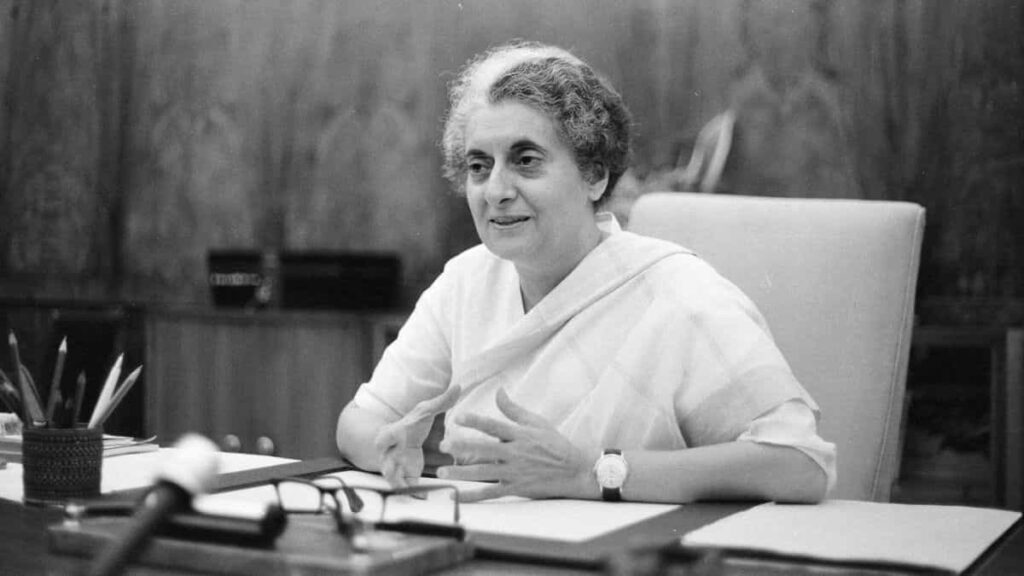The first woman Prime Minister of India was Indira Gandhi. She served as the Prime Minister of India from 1966 to 1977 and then again from 1980 until her assassination in 1984.
Indira Gandhi: The First Woman Prime Minister of India
Introduction:
Indira Gandhi made history when she became the first woman Prime Minister of India in 1966. She led the country through challenging times and left an indelible mark on Indian politics. In this article, we will explore her life, career, and legacy as the first woman Prime Minister of India.
Early Life:
Indira Gandhi was born on November 19, 1917, in Allahabad, India. She was the daughter of Jawaharlal Nehru, the first Prime Minister of India, and Kamala Nehru. Indira grew up in a politically active family and was exposed to the ideals of Indian independence and social justice from a young age. She attended schools in India and Switzerland before pursuing her higher education at Somerville College, Oxford.
Attempt the Women’s Day Quiz Now!
Entry into Politics:
Indira Gandhi’s entry into politics was largely influenced by her father’s involvement in the Indian independence movement. She became a member of the Indian National Congress in 1955 and served in various capacities within the party. In 1959, she was appointed as the President of the Congress Party’s women’s wing.
Rise to Power:
In 1964, after the sudden death of Jawaharlal Nehru, Indira Gandhi was appointed as a member of the Rajya Sabha, the upper house of the Indian Parliament. In 1966, she was elected as the Prime Minister of India after a split within the Congress Party. She led the country through a tumultuous period marked by regional tensions, economic challenges, and social unrest.
Achievements as Prime Minister:
Indira Gandhi’s tenure as the Prime Minister of India was marked by a number of significant achievements. She introduced a number of key social and economic reforms, including the nationalization of banks and the abolition of the princely states. She also played a key role in India’s successful nuclear program, which culminated in the country’s first nuclear test in 1974.
Indira Gandhi was also a champion of women’s rights and empowerment. She established the Ministry of Women and Child Development and worked to promote women’s education and employment opportunities. She also introduced a number of laws to protect women from domestic violence and sexual harassment.
Controversies and Criticisms:
Indira Gandhi’s tenure as Prime Minister was not without controversy and criticism. Her government was accused of authoritarianism and censorship, and she faced protests and opposition from various political groups. In 1975, she declared a state of emergency, suspending civil liberties and arresting political opponents. The emergency was lifted in 1977, and Indira Gandhi’s government was defeated in the subsequent elections.
Assassination and Legacy:
Indira Gandhi’s second term as Prime Minister began in 1980, and she continued to champion social and economic reforms. However, her government faced renewed criticism and opposition, particularly from Sikh separatists in Punjab. On October 31, 1984, Indira Gandhi was assassinated by two of her Sikh bodyguards in retaliation for her government’s military action against Sikh militants in the Golden Temple.
Indira Gandhi’s legacy as the first woman Prime Minister of India is complex and contested. While she is celebrated for her contributions to social and economic development, she is also criticized for her authoritarianism and for the excesses of her government. Her assassination was a tragic event that shook the country and led to a period of instability and violence.
Conclusion:
Indira Gandhi’s life and career as the first woman Prime Minister of India were marked by significant achievements, controversies, and tragedies. She played a key role in shaping the country’s social and economic development, and her contributions to women’s rights and empowerment continue to be celebrated. At the same time, her authoritarianism and the excesses of her government remain a source of criticism and reflection. Indira Gandhi’s legacy continues to be debated and evaluated by scholars, activists, and citizens. Nevertheless, her place in Indian history as the first woman Prime Minister and her contributions to the country’s progress cannot be denied. She inspired a generation of women to enter politics and pursue leadership positions, paving the way for other women leaders in India and around the world. As India continues to grapple with social and economic challenges, the lessons and achievements of Indira Gandhi’s life and career remain relevant and important.
